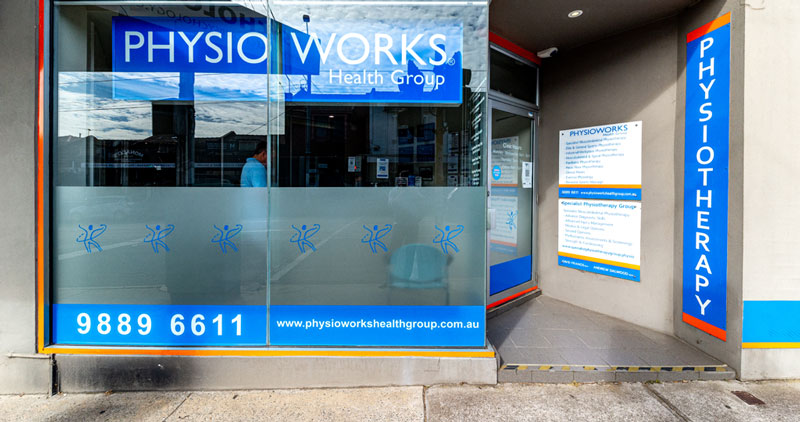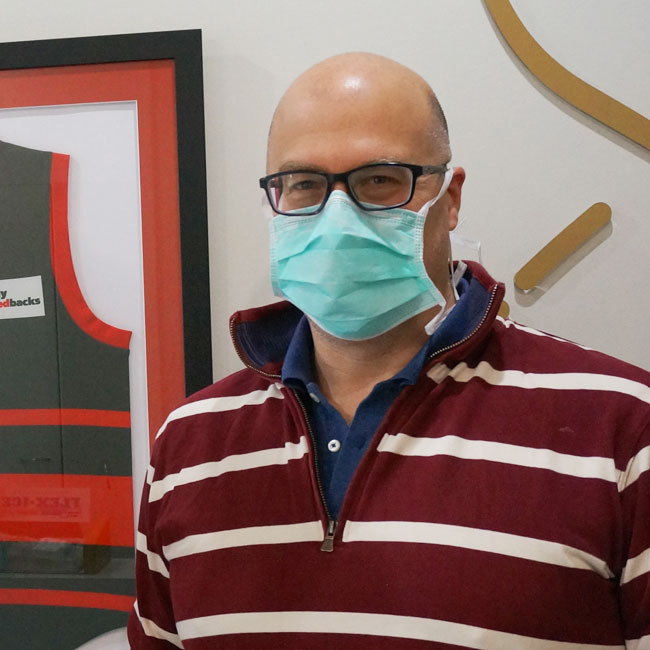Physioworks Camberwell Physiotherapist, Brad Fernihough discusses his experience working with Cirque du Soleil providing services as part of the Performance Medicine team, an essential, dedicated business discipline to ensuring that “the show must go on”.
“Want to join the circus?”
In 2004 a friend told me about working as a physiotherapist for Cirque du Soleil. The Circus? Little did I know that misconceptions are simply just that. I will never forget turning up at the ‘Employee Entrance’ and quickly realising that this was not amateur hour.
A fully serviced kitchen with 4 full-time chefs, a school for the children of the performers, Accountants, Travel and Lodging Co-ordinators, HR Advisors, Marketing Managers, Merchandising supervisors, Electricians, Plumbers, Mechanics, Tent Masters, 52 elite performance artists and 2 full time Physiotherapists. This team all worked in on-site tour trailers that are packed into 50 trucks at the end of every 6 weeks, driven hundreds of kilometres around Europe, before being set up all over again.
Upon entering the air-conditioned ‘artistic tent’, performers were in the middle of warm up and pre-show routine. Hand stands, 16 year old trapeze twins hanging upside down only connected by some sticky glue on the dorsum of their feet, singers in wardrobe getting wig adjustments, and a general vibe of some live, constant, evolving organism raring to go.
Performance Medicine was a dedicated office space, with 2 huge road cases full of typical sports taping and emergency medicine supplies, 2 pull up/down beds, massage table and everything you would ever have in a professional clinic environment, including 5 Swiss balls hanging in a net, squat rack, bench press, dumbbell rack, bike, cross trainer and Pilates reformer, all permanent fixtures. Performance Medicine was a key part of a team environment at the core of the functioning heart of each show, essential for the ongoing changes to the show that could crop up at a moment’s notice.
An annual salary, travel allowance, free travel, food and accommodation…. but where do I stay? In the trailers? I was quickly told that no one has lived on site for 10 years and that corporate housing was standard. Where do I sign? Within 2 weeks, visa organised and I’d been checked into a plush hotel just off the Champ Elise, Paris, France.
In my first week, a giant Russian acrobat was returning to the show following thoracic spine surgery. Having done most of his rehab at Cirques Montreal IHQ, he returned to the tour for the functional and specific acrobatic retraining he could only get with his fellow performers. Eager to display my enthusiasm and expertise, I jumped straight in with a rehab plan for him and ran it through with the head coach. It wasn’t long before he showed me a thing or two about the demands of his discipline and his interpretation of the physio’s role!
Old school blended with new school, the circus way, the performer’s way – the show must go on. An elite environment with some tried and tested methods – ‘if it ain’t broke, why fix it’. Ex-Olympians and world class competitive acrobats and performers who showed me over six years how adaptive their bodies were to pain and injuries in disciplines such as teeter board, trapeze, juggling, bungee trapeze, tumbling and Chinese chair.
Emergency procedures and first responder responsibilities were at the forefront of a safe working environment. A 2009 Shrier et al, 5 year epidemiological study concluded “Most injuries in circus performers are minor, and rates of more serious injuries are lower than for many National Collegiate Athletic Association sports.” Not bad for full time athletes who perform 300+ shows a year.
My physiotherapist role included ensuring base line testing once a year, and implementation of strength and condition programs. Ensuring the concussion protocol was followed required maintaining a close relationship with a medical network, and if one didn’t exist (in a new city), building those relationships for future tours was paramount.
With non-stop on the road performances year after year with a limited “off season”, injury prevention and wellness programs, including Clinical Pilates were the key to ensuring 52 performers are on stage week in, week out.
The degree of difficulty of managing these programs is magnified by high risk elements in acts, such as ‘Wheel of Death’ and ‘High Wire’, which have associated mental fatigue factors – critical that this is recognised and understood in any elite environment.
The Circus Arts consists of some of the most challenging, higher learning orientated, central nervous system treatment tasks. As head physiotherapist on tour, one is just as much a neuro physio as a musculoskeletal physio.
At Physioworks Health Group we believe “Everyone is an athlete…we just have different events”. My experience at Cirque du Soleil enabled me to further develop and enhance my treatment skill expertise and to fully appreciate this service motto.
Working with Cirque du Soleil was a truly rewarding experience. I am proud to say I have treated some of the most gifted and skilful athletes on the planet, and helped to “keep the show on the road”.
Brad Fernihough is an APA Sports Physiotherapist at Physioworks Health Group Camberwell. His treatment expertise extends across a range of Performance disciplines including Sports and Dance. For treatment with Brad please call on 9889 6611 for a booking or contact him at camberwell@physioworksvic.com.au







